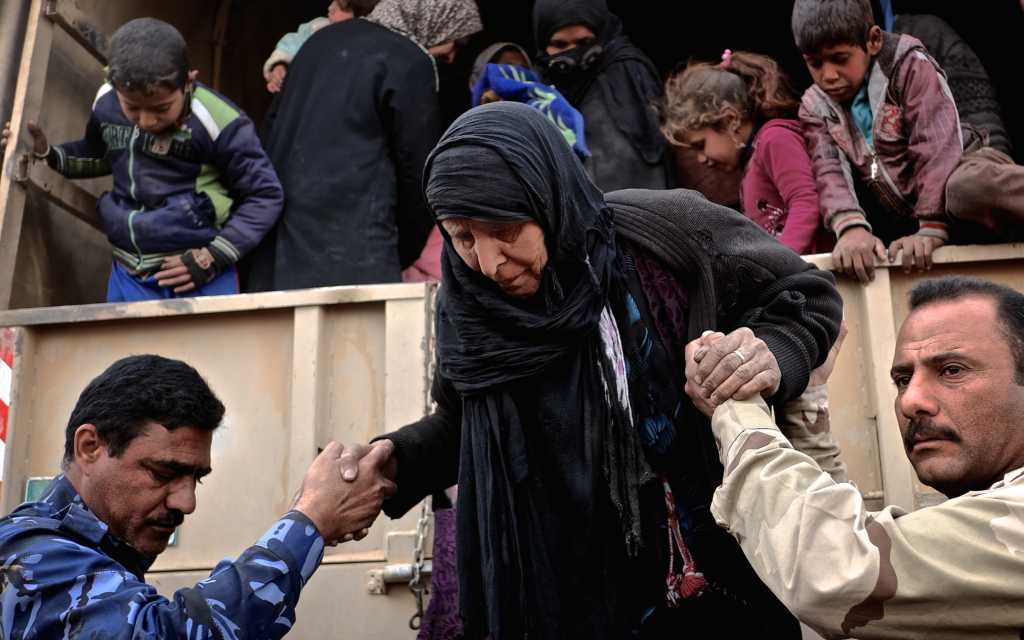Humanitarian officials inside the walls of western Mosul are desperately reporting that the ongoing battle between the national Iraqi forces and the Islamic State has left thousands trapped and in desperate need of medical care.
According to a World Health Organization (WHO) representative, this “house-to-house fighting” style of combat has yielded deadly results. Speaking to Faithwire, Altaf Musani stressed that “we haven’t seen this type of warfare in decades. [It is all] quite unique in terms of profile and in terms of casualties. We are finding a heavy casualty case load.”
Earlier this year, Iraqi government military forces launched an offensive to retake west Mosul from ISIS.
READ: Escalation of Fighting in Western Mosul Has Left 600,000 Trapped, Starving
But now, almost sixty days later, the terrain of the city’s western region is causing major setbacks. Altaf Musani explained that “the west (has) at least 750,000 people that we know of and it’s a very different typology than … the east.”
“The west has an old city that is … densely populated, and the infrastructure itself is one that is urban in nature as opposed to rural (like the east),” he said.
So that means “narrower streets, taller buildings, and of course, an infrastructure that has been outdated over a number of years.” Musani said that this, paired with the additional factors of close proximity and density, has led to dire concerns about the number of wounded and injured individuals coming out of the frontline.
On top of those constraints, people in the west are dealing with limited electricity, limited water, and limited food, the humanitarian official noted. With that in mind, organizations on the ground are “deeply concerned” about children and women. Estimates based on data collected note that roughly 5,000 people (combining east and west Mosul) have been injured; 30 percent are children under the age of 15, and another 30 percent are women.
To treat and cope with the growing number of reported casualties, healthcare providers are as close as possible to the front lines.
“We are pushing the envelope in terms of getting as close as we can to the front lines and we are pushing the envelope in care, so we can get near as possible,” Musani said.
The process of doing so has required more man power than expected. Hundreds of trained health care professionals from outside of the country have been brought in to handle the increasing number of trauma cases in the urban field.
Media reports from over the weekend stated that the U.S. military is sending additional American troops to help retake Mosul from ISIS. Defense officials confirmed the reports to ABC News on Monday.
This new information comes as the American government has received much backlash after admitting to a deadly U.S.-led airstrike that caused roughly 100 deaths.
When the March 17 incident was confirmed by U.S. officials Saturday, Col. Muntathar Al-Shamari, the head of the Iraqi Counterterrorism Unit in Mosul, stated that prior to this airstrike, his forces asked the American government “to engage an ISIS vehicle” that was reportedly loaded with explosives.
So “when the [vehicle] was struck, it exploded, destroying one or two of the houses next to where families were hiding.”
If you are interested in helping to support the medical needs facing the citizens and national soldiers in west Mosul, consider donating to Samaritan’s Purse, an international Christian organization that has hospitals close to the front lines of fighting in the country.
Here’s the link.
—
Other Must-Read Stories:
– 92-Year-Old Veteran Finally Receives Purple Heart Earned in WWII More Than 7 Decades Later
– Reconciling Human Suffering With Faith
– Former Abused Shelter Dog Saves 3-Year-Old Girl From River



